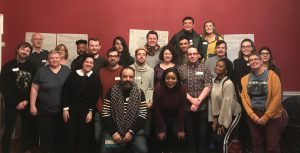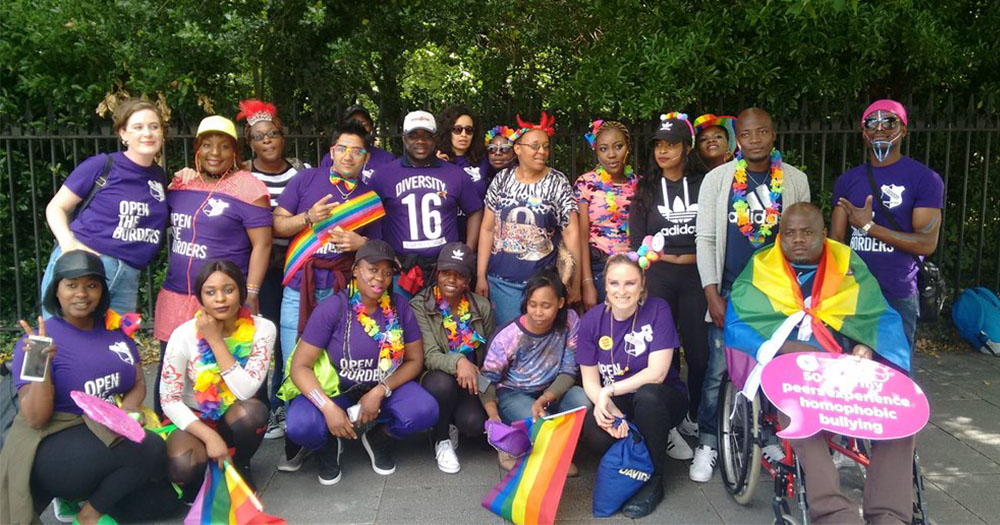On Saturday February 3rd, a gathering of activists and delegates from Ireland and across Europe met in a learning exchange to share experiences and discuss ways forward in addressing issues faced by LGBTQ+ asylum seekers.
Following on from the launch of the report Far from Home: Life as an LGBT Migrant in Ireland, the learning exchange was organised by the NXF, LGBT Ireland, Queer Diaspora and Outhouse.
The day was divided into two sections; the first a conversation between the attendees of the problems and issues that arise for LGBTQ+ asylum seekers, and possible ways to address them. The second was an introduction and discussion by representatives of support groups and activists from across Europe who spoke about their own modes of practice and both the unique and universal problems in battling bureaucracy.
In the first half, issues in Ireland’s Direct Provision system were discussed. Isolation was a large factor – some centres can be located so far from any towns that people are stranded with a lack of access to LBTQ+ support services. Staff training was also raised, as many receive no advice on issues pertaining to the LGBTQ+ community.
Those in Direct Provision also find themselves in the unfortunate situation where they can actually be housed with people from the homophobic communities they were fleeing in the first place. Others stressed the need for vulnerability training – ensuring those who need help most receive it, along with translator services, counselling, peer support and access to peers and the need for appropriate government departments to work better together.
While many suggestions were made on how grassroots organisations could help, the overwhelming feeling was that these were very small measures in combatting a huge system that needed to be completely overhauled.
The second half of the learning exchange consisted of various asylum seeker support groups from across Europe speaking about their own practices and aims. With such a wealth of information, links for each of the organisations have been provided to get a further handle of what each of them do.
Amongst other things, the spokesperson from ILGA-Europe described how the problem isn’t always opposition, it’s ignorance – with many either not aware of the problems or not knowing how to solve them. CILD brought up cases where asylum seekers who could “pass” as straight were told they should go back to their country of origin.

A few members of the learning exchange described how the Rainbow Map (a ranking of European countries based on their LGBTQ+ equality laws and policies) could be misleading, as while an LGBTQ+asylum seeker might choose a country based on their ranking, it might have very poor migrant policies.
The Rainbow House in Brussels spoke of how bisexual asylum seekers were told they could just be with opposite sex partners and the problem would be solved.
UKLGIG spoke of how cultural differences can make a big impact on how asylum seekers are perceived – they described how in some cases people had their applications refused because of a lack of emotional terminology.
ACATHI stressed the importance of peer support and personal contact for asylum seekers in order to combat isolation and improve mental health.
While each country was very aware they had a way to go in their treatment of asylum seekers, it was roundly agreed that the learning exchange was an excellent opportunity to make connections with other support organisations in order to work for those changes across Europe.
© 2019 GCN (Gay Community News). All rights reserved.
Support GCN
GCN is a free, vital resource for Ireland’s LGBTQ+ community since 1988.
GCN is a trading name of National LGBT Federation CLG, a registered charity - Charity Number: 20034580.
GCN relies on the generous support of the community and allies to sustain the crucial work that we do. Producing GCN is costly, and, in an industry which has been hugely impacted by rising costs, we need your support to help sustain and grow this vital resource.
Supporting GCN for as little as €1.99 per month will help us continue our work as Ireland’s free, independent LGBTQ+ media.
